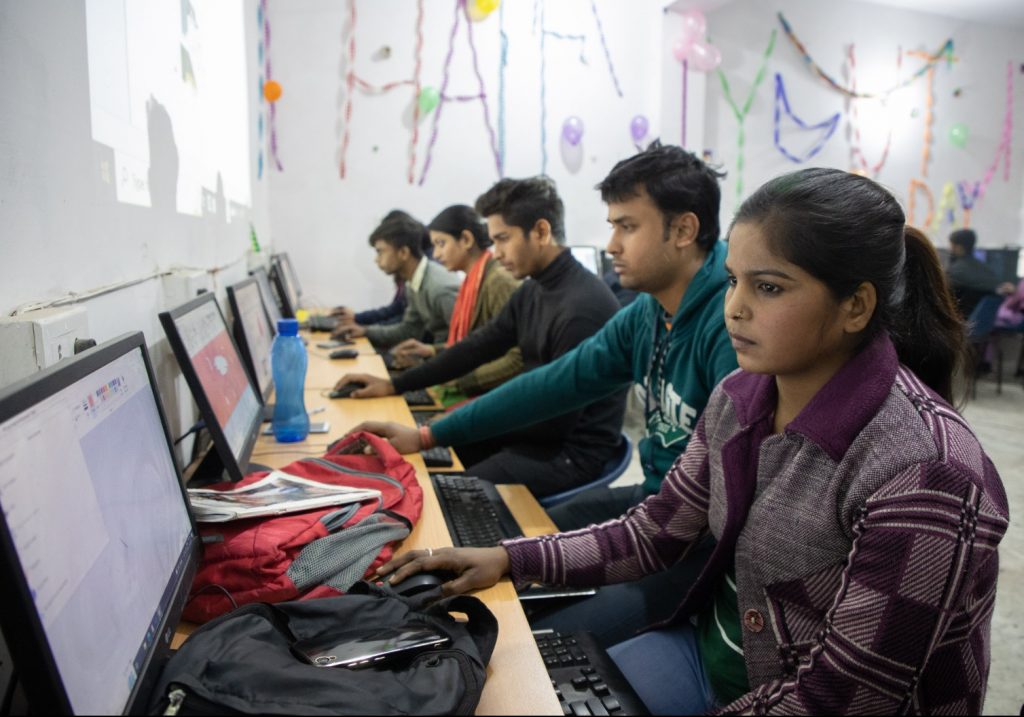Following Dr APJ Abdul Kalam’s death in July 2015, the country’s Prime Minister, Mr Narendra Modi paid tribute to India’s “Missile Man.” He called Dr Kalam a true Bharat Ratna and an inspiration for every dreamer in the country. This calls for a discussion about the education system in India!
In his heartfelt tribute, PM Modi also remembered the former Indian President’s vision for India: a knowledge superpower. “Bharat has lost a Ratna, but the light from this jewel will guide us towards APJ Abdul Kalam’s dream destination: India as a knowledge superpower, in the first rank of nations,” said PM Modi.
Seven years on, the government has made significant strides towards achieving Dr Kalam’s dream. The government has taken several steps to make India a knowledge powerhouse, but the National Education Policy (NEP) 2020 could be the real game-changer.
National Education Policy (NEP) 2020
The National Education Policy (NEP) 2020 is a Government of India initiative to transform the education system in India and make the country a knowledge hub. It was approved by the Union Cabinet on July 29, 2020, replacing the previous National Policy on Education, which was last revised in 1992.
NEP 2020 provides a comprehensive roadmap outlining India’s approach to education in the coming decades. It aims to make India’s education system more holistic and learner-centric, focusing on developing students’ cognitive, socio-emotional, and practical skills.
It is based on the principles of accessibility, equity, quality, affordability, and accountability. The policy recognises the need for a more flexible and multidisciplinary approach to education, lacking in India’s existing system.
The policy will enable students to adapt to the changing needs of the economy and society.
How the NEP 2020 will Transform India
NEP 2020 was announced after several rounds of consultations and discussions with relevant stakeholders. It has been formulated with care and has certain key features that can truly transform the education system in India.
1. Focus on Childhood Education System in India
A strong foundation is central to achieving academic and professional success in life. With clear basics, individuals can learn advanced concepts in their fields more easily, helping them excel at their work.
Therefore, emphasis on early childhood education is one of the key features of the National Education Policy 2020. The policy advises the establishment of a National Curricular and Pedagogical Framework for Early Childhood Care and Education (ECCE) for children up to the age of 8.
The teaching method and the importance of play-based learning have been highlighted for the comprehensive development of students. With this feature, children will receive a strong foundation and enjoy learning.
2. Vocational Education is Key
Textbook learning is essential, but skills help you succeed in the real world. The world is rapidly changing, and students must adapt their skills to ensure continued progress.
NEP 2020 recognises this and has focused on providing vocational education and skill development. The policy stresses the importance of providing students with practical skills to help them succeed in the corporate world.
The policy has proposed the establishment of a National Skills Qualification Framework (NSQF), which will enable students to acquire vocational skills while they are still in college or university.
3. Education for All
India is a developing economy, so technology and progress aren’t linear everywhere in the country. Certain sections– like the rural remote areas and urban slums, are deprived of the same employment and learning opportunities as those residing in better and upward networked spaces.
The National Education Policy 2020 will change that as far as education is concerned. It aims to increase access to education for disadvantaged and marginalised communities. Children from such sections can prosper and help improve their communities with increased learning opportunities.
The policy proposes the establishment of a Gender Inclusion Fund and a National Scholarship Portal. They will help support girls and students from economically weaker sections. NEP 2020 also calls for establishing a Special Education Zone for disadvantaged regions, which will provide additional support and resources to students in these areas.
4. Overhaul the Assessment System
Exams often bring nightmares to students. As a result, they cannot perform at their best, but the scorecard still dictates their futures.
NEP 2020 hopes to change that by overhauling the examination and assessment system altogether. The policy recommends moving away from rote learning and memorisation-based assessments, which test nothing but students’ memorisation skills.
It aims to move towards more competency-based and formative assessments that provide a more comprehensive picture of students’ abilities. It will help to promote a more comprehensive understanding of concepts and encourage students to develop critical thinking and problem-solving skills.
5. Change the Higher Education System in India
The higher education system in India is far from ideal. It primarily focuses on grades rather than skills, promoting an unhealthy environment where students’ examination grades precede skills.
Regulators like the University Grants Commission (UGC) and the All India Council for Technical Education (AICTE) regularly make changes to the higher education system but have yet to be successful in their mission to change the mindset.
Therefore, the NEP 2020 suggests a single regulator for higher education. The new regulator, called the Higher Education Commission of India (HECI), will set standards, ensure quality, and promote innovation in higher education.
The NEP 2020 also proposes a major reform of the undergraduate education system. Students are on course to discover their passion in their early 20s and may find they’re in the wrong field during their bachelor’s.
Hence, the NEP 2020 recommends introducing a four-year bachelor’s degree program with multiple exit options. The possibility of lateral entry into higher education makes the new system more flexible and interdisciplinary. Students can choose their own paths of study and pivot more easily.
A Bright Education System in India
Educators and experts have welcomed the NEP 2020. The much-needed reform will transform the current education system in India and help students’ overall development.
Focus on higher education and skill development is also welcome, given the skill gap in the country. Smile Foundation is making concerted efforts towards skilling the youth from backgrounds that need special attention.
Our STeP or the Smile Twin e-Learning Programme is enthusiastically partnering with organisations sharing the same ethos of “skilling for respectable livelihood means”. The programme skills the youth in sectors like healthcare assistance, digital marketing, BFSI and e-logistics and has successfully placed 45000+ youth in global and national brands till now.
Implementing the NEP 2020 will require a mammoth effort from the government and other stakeholders. All parties need to work together to fully realise the goal of the NEP 2020 and we are completely ready to do our part towards realising India’s big dream to become a knowledge superpower.










One reply on “NEP 2020 and India’s Big Dream: Knowledge Superpower”
Too informative.